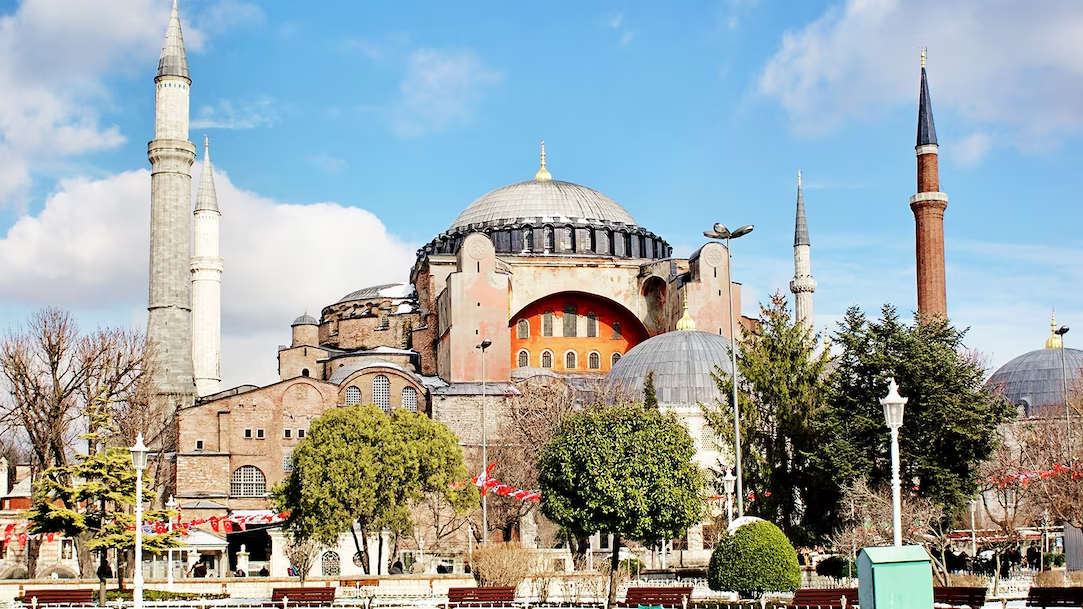A growing social media campaign to “Boycott Turkey” is having tangible effects across Turkiye markets. From travel cancelations to the rejection of Turkish apples and marble, businesses and trade groups are reacting to political tensions between the countries.
What Triggered the Boycott?
The backlash began after Turkiye and Azerbaijan publicly supported Pakistan during Operation Sindoor, India’s military response to the Pahalgam terror attack. Reports alleging that Turkey supplied Pakistan with drones and arms have only fueled public anger.
The Trade Snapshot: India-Turkey Commerce at a Glance
India enjoys a trade surplus with Turkiye. Between April 2024 and February 2025, India exported $5.2 billion worth of goods to Turkiye, making up about 1.5% of its total exports. Imports from Turkiye, including apples, marble, and mineral oil, were valued at $2.84 billion — just 0.5% of India’s total.
Turkish apples are a significant import; in 2023, India bought $92.8 million worth of apples from Turkiye. Turkish marble also dominates the Indian market, contributing to about 70% of India’s imported marble — around 14 to 18 lakh tonnes annually.
Traders Take a Stand
Pune traders have already begun rejecting Turkish apples, choosing domestic sources like Himachal and Uttarakhand instead. Maharashtra Deputy Chief Minister Devendra Fadnavis backed the move:
“I congratulate all traders who have decided to boycott imports from Turkiye. At this juncture, ‘nation first’ should be our stand.”
The boycott could impact Pune’s fruit market significantly, where Turkish apples account for ₹1,000–1,200 crore in seasonal turnover.
Marble Industry Joins In
The Udaipur Marble Processors Association, representing 125 firms, has called for an immediate ban on Turkish marble imports. In a letter to Prime Minister Narendra Modi, Association President Kapil Surana said:
“Business cannot be bigger than the nation.”
Travel Industry Takes a Hit
Travel to Turkiye and Azerbaijan is also declining. Bookings have dropped 60% while cancellations have surged 250%. Online agencies like EaseMyTrip, MakeMyTrip, and ClearMyTrip are advising against non-essential travel.
EaseMyTrip issued a statement:
“In view of the terror attack in Pahalgam on April 22… and war-like situations between India and Pakistan, it is disheartening to note that Turkey and Azerbaijan have extended their support to Pakistan.”
Indian travelers spent around $291.6 million in Turkiye last year. With 300,000 Indians visiting the country, the boycott could deal a blow to Turkiye’s $61.1 billion tourism industry.
Political Reactions Remain Unfazed
Despite the economic impact, Turkiye’s leadership appears unshaken. Turkish President Recep Tayyip Erdoğan responded to Pakistani Prime Minister Shehbaz Sharif with a public show of support:
“My precious brother… the brotherhood between Turkey and Pakistan… is one of the best examples of true friendship. We appreciate the sensible, patient policy of the Pakistani state, which prioritizes dialogue and compromise.”
India’s Past Support for Turkiye
While the political relationship is tense now, India extended significant aid during the February 2023 earthquakes in Turkiye. Under Operation Dost, India dispatched over 250 trained personnel, medical teams, and relief materials via six C-17 aircraft — one of the earliest humanitarian efforts to reach the country.
No Official Ban — Yet
There is no official restriction on trade or tourism between India and Turkiye. However, public sentiment — fueled by online calls and political statements — is reshaping business choices and shifting consumer behavior at scale.






